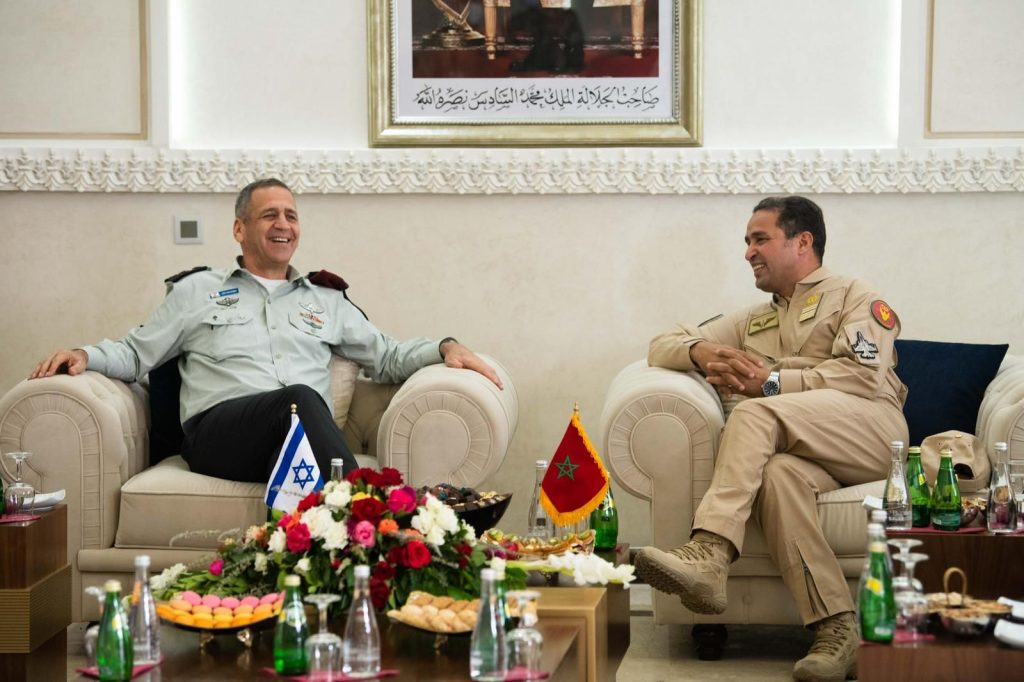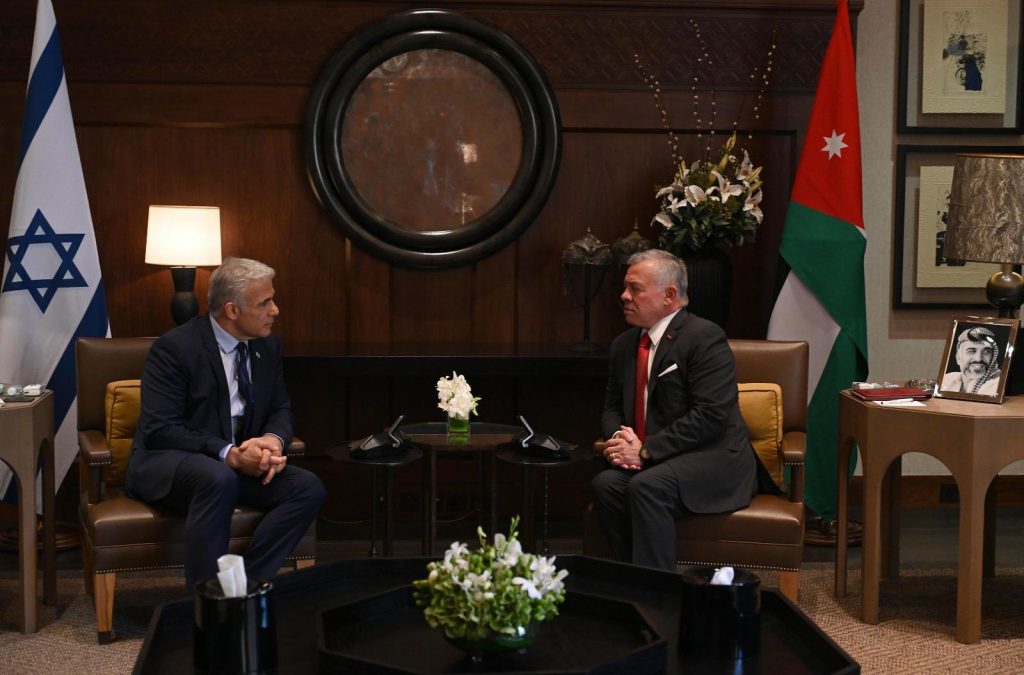Australia/Israel Review
The New Normal
Sep 1, 2022 | Hillel Frisch

Since a Palestinian mob attempted to lynch Tunisia’s President in 1964 for suggesting peace with Israel, the “Arab Street” has come a long way. Even a warm handshake between Israel’s army chief, Major General Aviv Kochavi, and senior Moroccan defence officials in the north African country on July 19 elicited little reaction. The Arabic-speaking publics are too preoccupied with their own problems to demonstrate in support of the Palestinians.
Nearly 60 years ago, Tunisian President Habib Bourguiba was nearly lynched in Jordan’s Baqa’a refugee camp for suggesting normalising relations with Israel as a strategy to bring down the Jewish state. He claimed that Jews were innately a roving, trading, diaspora people. Allow Israelis to trade among us, he contended, and the Sephardim [Jews from Arab nations] would soon emigrate from Israel and return to their commercial pursuits in the Arab states they had fled, leaving Israel an empty shell.
The story’s significance is not in Bourguiba’s analysis – Israel’s Jewish population (like its Arab citizens) enjoy travelling abroad and engaging in international business while keeping Israel as their beloved home base. The Jewish population in Israel has more than doubled since Bourguiba escaped from death, and Israel is one of two non-European countries in the top ten on the World Happiness Index.
What is significant about Bourguiba’s bout with the Palestinian mob is how much light it reflects on the dramatic shift of the “Arab Street” toward Israel, particularly the Abraham Accords process in what is known as “normalisation” in the Arab world. Of course, normalisation, tatbi’ in Arabic, may remain a derogatory term in the lexicon of intellectuals and the Arab street, perhaps even to the point of being a curse word. Still, the fact is that the Arab world’s reaction to the ever-deepening process of normalisation arouses less and less interest, let alone protest.
What more could be done to arouse anger than the trip by Israeli Defence Minister Benny Gantz, whose title in many Arab-speaking media outlets is “Minister of War,” to the United Arab Emirates to discuss military cooperation? Worse, there are the almost messianic photos of Kochavi shaking hands with his Moroccan counterparts.
To be sure, Hamas and Hezbollah media outlets were quick to condemn these treasonous acts, and Palestinian leader, Mahmoud Abbas’ propagandists either commented on these “unfortunate” and “sad” events or ignored them entirely.
But words are cheap; the real issue was the Arab street’s reaction in the streets themselves. Very little happened. In most Arab capitals and major cities, nothing happened. In a few that exhibited any activity, a dozen activists, mostly with greying hair, gathered behind banners opposing normalisation, while many more than the demonstrators passed by without raising an eyebrow.
Even in the Palestinian Authority and Gaza, these moves elicited only a cursory response. The same scenes that played out in Arab cities were played out among Palestinians.
It is not surprising, then, that Israeli Prime Minister Yair Lapid’s meeting with Jordan’s King Abdullah in late July, in which they agreed to develop a joint economic hub near the King Hussein Bridge where Israeli and Jordanian businessmen could meet, was met with calmness – in almost prophetic contrast to the reaction to Bourguiba 58 years ago.

Israeli PM Yair Lapid meets Jordan’s King Abdullah (Image: Flickr)
Neither the meeting nor the proposal demonstrated any bravery on the part of the Hashemite King. Jordan signed an agreement six years ago to purchase 45 billion cubic metres of Israeli gas for ten billion US dollars over 15 years.
There was so little opposition on the “Jordanian street” that security forces took no action against Hisham al-Bustani, the coordinator of “the Campaign Against the Enemy’s Gas,” who accused by name the Jordanian ministers involved in the agreement’s ratification. If the regime had felt threatened, it would have arrested him for incitement. It was correct: two years after the video in which al-Bustani appeared, only 145 people had viewed it, with only one comment, which was supportive of the King.
Normalisation with Israel is not met with equanimity in so many Arab states because of a love for Israel. Nor has the realisation of Israel’s technological achievements changed public attitudes toward the Jewish state.
The transformation is far more fundamental and internal. Arab publics are engrossed by the challenges that they face in their own states. For example, in Lebanon there are economic burdens, growing animosity toward Hezbollah, and the threat of renewed civil war that Hezbollah control evokes. In Iraq there is the danger of political and economic meltdown – not as a result of the Shi’ite/Sunni divide as it was a decade ago, but more ominously, in an intra-Shi’ite conflict fuelled by Iranian meddling. And in Egypt, there is the perennial concern of keeping Egypt above water economically, not to mention Tunisia.
In short, when the “Arab street” takes to the streets, they cannot add the burden of the Palestinians to their concerns. Last year, a Syrian opposition member who Palestinian students heckled at Hebrew University responded, “You live in paradise compared to what Syrians face!”
The Arab street’s lack of reaction allows Arab leaders to pursue their relations with Israel to benefit themselves and their constituents.
Hillel Frisch is professor emeritus at Bar-Ilan University and former Senior Researcher in the Begin-Sadat (BESA) Centre for Strategic Studies. © Jerusalem Institute for Strategic Studies (www.jiss.org.il), reprinted by permission, all rights reserved.
Tags: Abraham Accords, Israel, Middle East, Palestinians






